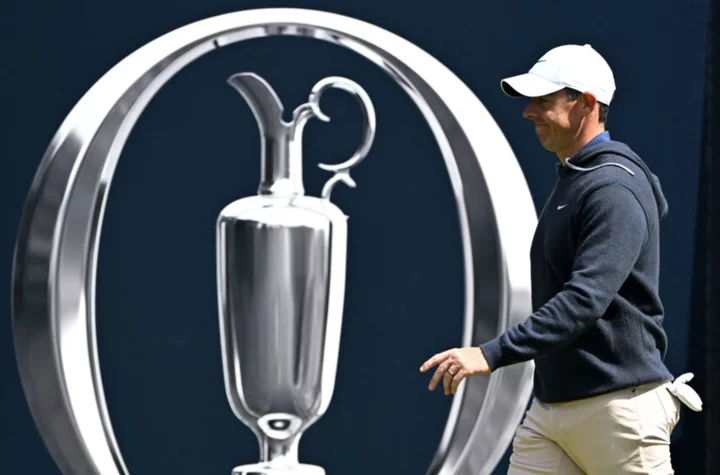
2023 Open Championship tee times, start time, field, purse, odds and how to watch
Breaking down 2023 Open Championship tee times with a look at the field, purse and prize money at Royal Liverpool, and how fans can watch the TV coverage.It's time for The Open Championship as American golf fans will get to enjoy some coffee golf for the last major championship of the 2023 ...
2023-07-17 23:54

Prue Leith says the state must ‘sometimes’ step in to tackle child obesity
Prue Leith has said that the state “sometimes” needs to step in to deal with child obesity, after a report claimed that every UK government in the last 30 years has feared being labelled a “nanny state”. The Great British Bake Off judge said politicians must make a “really massive effort” to address issues that contribute to obesity and give people practical lessons and skills. Speaking at a hearing of The Times Health Commission, she said: “Sometimes the state has to be a nanny. We don’t mind the fact that the nanny state insists we go to school to learn maths. “So the nanny state who has to pay enormous sums of money to rectify the problem of obesity has every right to want the nation to learn to like good food and to learn about nutrition.” The Times Health Commission is a year-long inquiry set up to consider the future of health and social care in England. Leith continued at the hearing: “The long and short of getting people to eat healthy food is that if they don’t like it, they won’t do it. Even if they do it for a week they won’t do it for longer. So the only way to tackle it, I think is to get them to like it.” The South African chef cited cooking lessons as an effective way of helping people to learn how to eat healthier. “I think government after government have played around with this at the edges, there has been a little bit of enthusiasm and then it’s dropped again. It just has to be a really massive effort,” she added. Leith also believed there not “any point in lecturing everybody” about nutrition and said: “The poorest person in the country knows that vegetables are better for them than chocolate bars. But the knowledge isn’t enough. “So people who just say, ‘education, education’, yes, education is important. But the main thing is physical. Getting to like it,” she said. Leith’s comments come after the Institute for Government (IfG) published a report in April that claimed “fear of ‘nanny statism’” has resulted in politicians being “afraid of interfering in people’s choices, especially their diets”. Dr Dolly Theis, an expert in obesity policy at the University of Cambridge, told the Guardian: “Some governments have done much more than others. But the IfG is right that a general desire to avoid accusations of nanny statism, a lack of understanding about the issue, and a lack of political prioritisation have all contributed to this chronic policy failure.” This week, the government said in a new report that the link between the “higher consumption of ultra-processed foods and adverse health outcomes are concerning”, but did not recommend that a new labelling system be put in place to inform consumers of the risks. The report stopped short in spite of MPs suggesting in parliament that health warnings should be considered on packaging for “highly addictive” ultra-processed foods. In a previous statement, the Department for Health and Social Care said: “We are taking firm action to help people live healthier lives, including introducing restrictions on where unhealthy food is placed in supermarkets, calorie labelling on menus, and we work closely with industry to make it easier for people to make healthy food choices. “Trials of new obesity treatments and technologies are being backed by £20m of government funding, and we will introduce restrictions banning adverts on TV for foods and drinks high in fat, salt or sugar before 9pm, as well as paid-for adverts online.” Read More Nigella says extravagant dinner parties are a thing of the past – I wish she was wrong From Queen Camilla to Mary Berry: Who is in the Royal Box on the 10th day of Wimbledon? What are pani puri? The much-loved Indian street snack known by different names across the country Jennette McCurdy says her mother would ‘measure her thighs’ when she was 11 Children say ‘I’m bored’ 7 times a week – 7 ways to prevent it What are weight loss injections and what’s the controversy?
2023-07-13 00:23
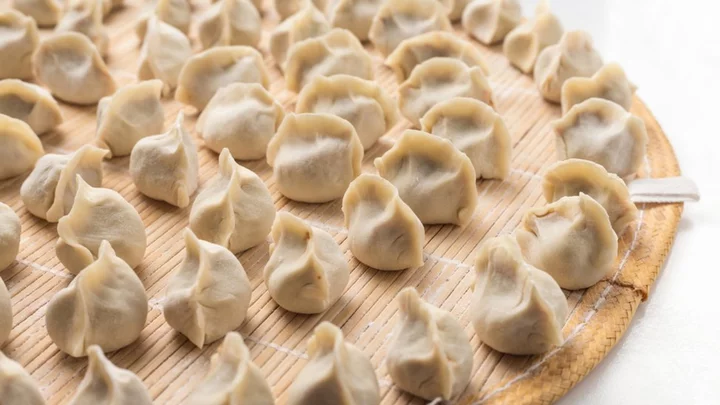
King of the Big Stomach: Chinese eatery in trouble over dumpling-eating race
The contest flouts laws against food waste and "misleads" people into over-ordering, authorities say.
2023-07-11 13:48
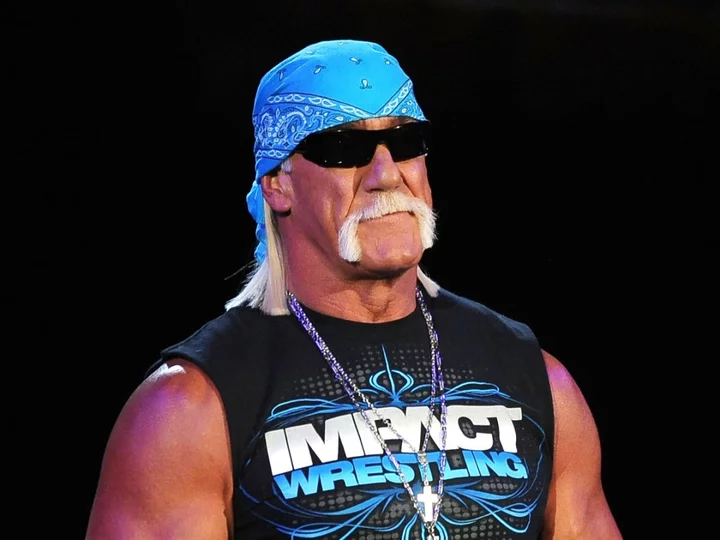
Hulk Hogan reveals he lost 40 pounds and gave up alcohol after witnessing his body ‘shut down’ on him
Hulk Hogan has spoken candidly about the lifestyle changes he made after his body “shut down” on him, with the former wrestler revealing that he’s given up alcohol completely and lost 40 pounds. The WWE Hall of Famer, 69, opened up about implementing healthier habits during a “Gym & Fridge” video for Men’s Health, where he reflected on his former routines and the impact they ultimately had on his body. In the clip, Hogan, whose real name is Terry Gene Bollea, revealed that his “pre-match meal” used to consist of “three Miller Lites and two Tylenols,” while his post-match meal consisted of “probably 12 Miller Lites”. However, according to Hogan, he decided to give up alcohol entirely six months ago, after he realised he had been using it as a way to “numb” himself. “I don’t drink alcohol at all. I just don’t drink, don’t take Tylenols. I don’t do anything except drink really good water,” Hogan said, before noting that he gave up alcohol “completely” six months ago. “I just got tired of it. It got to be a way to kind of numb me a little bit because I had a bunch of crazy business problems and personal stuff going on at the time.” Hogan also revealed that he chose to stop drinking after realising that he was “getting too aggressive” with alcohol. “I caught myself after I would train, getting too aggressive with alcohol. So I just had to stop it,” he explained. The former professional wrestler, who lost 40 pounds over the last two years, also credited an experience 15 years ago for his decision to change his lifestyle, as Hogan recalled how his body had “shut down” on him after 40 years of wrestling. “About 15 years ago my body kinda shut down on me. I had several knee surgeries … and then after wrestling 40 years almost, my body shut down on me,” he told the outlet. “I went in for one back surgery and it turned into 10 back surgeries. Both knees needed to be replaced. Both hips were replaced. A couple surgeries on my face from getting my orbital socket broken a couple times. “And it ended up being 25 or 26 surgeries, or a couple more, over a 10- or 12-year period.” According to Hogan, the experience “changed the game” for him and encouraged him to change his “whole lifestyle”. “I changed my whole lifestyle because, at the time, being in so much pain and getting older and older, I couldn’t carry that much weight,” he said. “And when you’re sedentary and you’re not moving and wrestling every night, it’s easy to put weight on.” The world renowned wrestling star said he ultimately decided to strive for a weight of 265 pounds, an amount he’d last weighed when he was in “ninth grade”. To reach his goal, and to overhaul his lifestyle, Hogan changed his eating habits, with the 69 year old revealing that he has a cup of yoghurt, a banana and organic coffee for breakfast each morning, while his lunch usually consists of proteins such as chicken, steak or raw tuna. The same is true for Hogan’s dinners, as the wrestler revealed dinner “usually consists of either steak or chicken or tuna”. “It’s pretty much the same,” he admitted, before adding that he also likes to indulge in “organic cookies”. According to Hogan, he also began omitting sugar from his diet after realising it was causing inflammation in his joints. “Sugar had to be eliminated immediately,” he recalled, as he explained that making his body “healthy” became much more important to him than making it “numb”. As for how he feels now, Hogan said he feels “great” and “alive”. “I feel great. Without all the other extra stuff, you actually feel alive, because a little bit of pain makes you know you are alive,” he said. This is not the first time Hogan has opened up about the lifestyle changes he’s made since retiring from wrestling in 2012. In May 2023, the Hogan Knows Best star told Men’s Health that he decided to stop taking pain medicine and drinking alcohol after becoming “sick of the brain fog, the trouble sleeping, feeling tired all the time, and not being myself”. According to Hogan, he was able to get “consistent” with his training “as soon as [he] cut back on the alcohol and straightened out [his] diet”. At the time, Hogan also expressed his gratitude for the lifestyle changes, which he said benefitted him both mentally and physically, as he admitted he “didn’t think this kind of transformation was possible at this stage” in his life. “My whole lifestyle has changed,” he said. Read More Hulk Hogan baffles fans with ‘bizarre’ divorce announcement, says ‘I thought everyone already knew’ Jennifer Lopez defends alcohol brand amid criticism: ‘I drink to be social’ How to go sober if your partner still drinks Father issues warning about mermaid tail swimsuits after daughter almost drowns Daniel Radcliffe says seeing Erin Darke become a mother is ‘most incredible thing’ Fiona Phillips target of telephone scam following Alzheimer’s diagnosis
2023-07-07 05:52
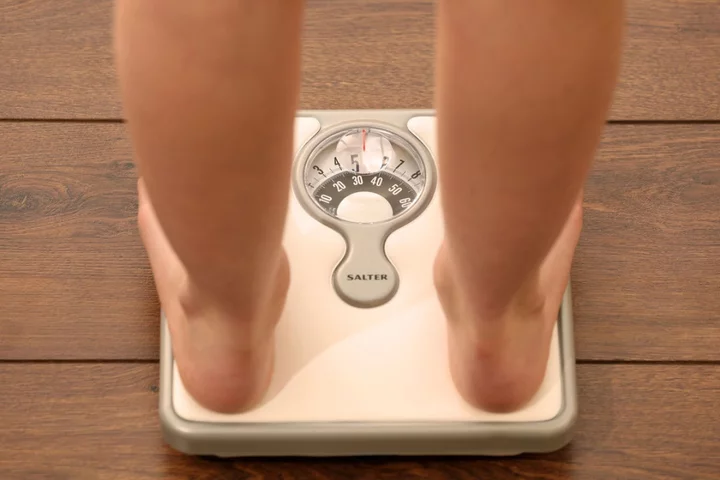
Being overweight ‘linked to 18 cancers’ in under-40s
Being overweight as a young adult can increase the risk of developing 18 cancers – more than have been previously linked with the disease, researchers found. Previous studies have shown that people who are overweight or obese have a heightened risk of a number of different cancers including breast, bowel, kidney and pancreatic. Now excess weight has also been linked to leukaemia, non-Hodgkin lymphoma, and among never-smokers, bladder and head and neck cancers in a large new study. The authors said these cancers have not previously been “considered as obesity-related cancers”. Our findings support public health strategies for cancer prevention focusing on preventing and reducing early overweight and obesity Study authors And that the impact of obesity on cancer is “likely underestimated”. The new study, published in Nature Communications, saw researchers examine data on more than 2.6 million Spanish adults aged 40 and under who were cancer-free in 2009. Researchers examined the body mass index (BMI) scores throughout the lifetime of people involved with the study, saying that previous research investigating the link between weight and cancer has used single BMI scores. The people in the study were tracked for nine years to see whether they developed cancer. Some 225,396 were diagnosed with cancer during the period studied. The Spanish researchers found that those who were overweight or obese in early adulthood – aged 40 and under – appeared to have an increased risk of cancer. Those who were overweight or obese for a longer period also appeared to have a higher risk. Our own evidence shows that maintaining a healthy weight throughout life is one of the most important things people can do to reduce their cancer risk, and early prevention in adulthood is key Dr Heinz Freisling, one of the study’s co-leaders Overall, some 18 cancers were linked to excess weight. The authors wrote: “This study shows that longer duration, greater degree, and younger age of onset of overweight and obesity during early adulthood are positively associated with risk of 18 cancers, including leukaemia, non-Hodgkin lymphoma, and among never-smokers, head and neck, and bladder cancers which are not yet considered as obesity-related cancers in the literature. “Our findings seem to indicate that longer exposures to overweight and obesity (with or without accounting for the degree of overweight and obesity), as well as developing overweight and obesity at younger ages in early adulthood might increase cancer risk. “Our findings support public health strategies for cancer prevention focusing on preventing and reducing early overweight and obesity.” Dr Heinz Freisling, from the International Agency for Research on Cancer and one of the study’s co-leaders, said: “The results of our study support a re-evaluation of the cancer burden associated with overweight and obesity, which currently is likely underestimated.” Commenting on the study, Dr Panagiota Mitrou, director of research, policy and innovation at World Cancer Research Fund, said: “This large study has future public health implications since additional cancers, such as leukaemia and non-Hodgkin lymphoma, have been shown to be linked with overweight and obesity. “Our own evidence shows that maintaining a healthy weight throughout life is one of the most important things people can do to reduce their cancer risk, and early prevention in adulthood is key.” Read More Study says drinking water from nearly half of US faucets contains potentially harmful chemicals Up to 10,000 Britons could take part in cancer vaccine trials People with signs of bowel cancer should be offered a £5 ‘poo test’ before invasive bowel investigations Nurture your health and wellbeing this season What diet drinks don’t have aspartame in them?
2023-07-06 13:20

How to go sober if your partner still drinks
Jennifer Lopez has come under fire for launching and promoting her new alcohol brand, due to her husband Ben Affleck’s problems with alcoholism. The 53-year-old Let’s Get Loud singer, who had previously told InStyle that she abstains from caffeine and alcohol, took to Instagram following the announcement of her new liquor brand Delola, saying she enjoyed the “occasional cocktail” but did not drink to excess. Fans had been quick to criticise her, posting comments like, ‘Why not respect your husband’s sobriety?’ Her husband Ben Affleck, 50, has been candid about his struggles with alcoholism. In a 2020 New York Times interview, he shared: “It took me a long time to fundamentally, deeply, without a hint of doubt, admit to myself that I am an alcoholic… The next drink will not be different.” Affleck is sober, but seemingly, Lopez is not. “Going sober can be really difficult, especially if your partner drinks. There may be aspects of your drinking which they enjoy, so it’s quite common for people close to you, to say things which make it harder to go sober,” says Dr David McLaughlan, a visiting consultant psychiatrist for the Priory. So, how can you do it if your partner isn’t so keen? Consider what you will gain “Going sober might mean less drunken fallouts or arguments about incidents which occurred under the influence of alcohol. Avoiding hangovers also gives you back a lot more quality time together and more free cash to spend on things that matter to you,” says McLaughlan. If more sex and higher fertility are important to you, quitting the booze may help, perhaps helping to garner support from your partner too. “You might also notice increased libido and erectile function when you quit drinking. Even small amounts of alcohol reduce your fertility, so giving up will also increase your chances of falling pregnant together,” he explains. Find the right time to discuss it It may be a sensitive topic to dive into. “It is important when you go sober, that you find a time when your partner is calm, collected and willing to discuss a big change in your relationship,” says Phil Jackman, an addiction therapist at private rehab clinic Delamere. “Attempting to speak to them when they are stressed or busy may lead to unnecessary conflict. “Once you’ve found the right time, be honest with your partner and let them know the reasons you are giving up alcohol, and how this might impact your relationship. Hopefully, they will be supportive of your decision, but there might need to be a few things you need to work through first. “If you are with a partner that still likes a drink, try asking them if they can remove any alcohol from the house, or from a place you have access to it, so you aren’t tempted to give up on your sobriety,” he says. Don’t make unfair demands of them “Though it is fair to ask your partner to stop drinking and support you in sobriety, it is important that this is not a strict expectation of them. Assuming someone will automatically change their lifestyle just to suit yours may cause unnecessary conflict,” Jackman says. “Instead, when you make the decision to go sober, it’s important that you sit and talk through the reasons why you want to give up drinking, so they fully understand your decision. You may find they want to improve their own personal relationship with alcohol. However, it’s important to note, not everyone will be willing to do so. ” Seek out authenticity One of you quitting drinking could break a dangerous cycle. “If you and your partner regularly drink, more than just socialising with friends or during an occasion, your relationship could develop with a co-dependency to alcohol, where you are drinking to maintain the relationship,” says Dr Stefan Walters, Caba’s addiction specialist. “As humans, we can be highly influenced by peer pressure and the people around us. So, if we are socialising with those who drink heavily, we may feel a judgement for being sober, or that we are not joining in on the fun,” he explains. Pushing past that dependency will help you be authentic with your partner. “When you are sober, your personality is authentic, and you will feel emotionally present throughout conversations and experiences with your partner,” Walters adds. Find new things to do together If one of you does not drink, you may have to think outside the box about things you can do together. “If you are still feeling this way about the activities or hobbies after some time, I’d recommend speaking openly with your partner about adjusting or changing them,” says Walters. “Generally, you may feel that you’d rather take up healthier hobbies, like physical pursuits or mentally stimulating activities, instead of those centred around drinking, like quizzes or socialising at the pub. “So, it’s not necessarily about how to enjoy the same things, but working out how to spend time together through new activities that you both enjoy and receive emotional fulfilment from,” he explains. Going sober could help you find something new you love to do together. Read More Charity boss speaks out over ‘traumatic’ encounter with royal aide Ukraine war’s heaviest fight rages in east - follow live Fiona Phillips Alzheimer’s diagnosis at 62: 7 ways to reduce your risk 7 popular destinations that will soon be in London’s ULEZ Kate’s best Wimbledon looks, as she steps out in retro outfit for the tennis
2023-07-05 20:49
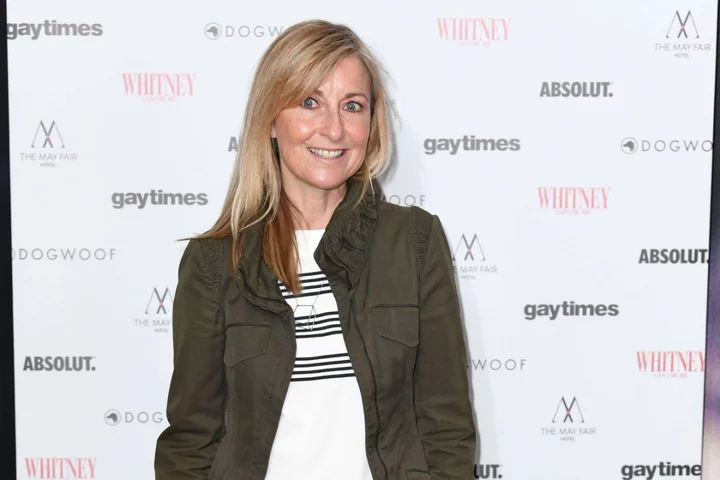
Fiona Phillips Alzheimer’s diagnosis at 62: 7 ways to reduce your risk
TV presenter Fiona Phillips has revealed she has been diagnosed with Alzheimer’s disease at the age of 62. The presenter and Daily Mirror columnist said the disease has “ravaged” her family and she had long feared being given the diagnosis. According to the Mirror, Phillips was diagnosed more than a year ago and is undergoing trials for a new drug that could slow the effects of the disease. Phillips, who is an Alzheimer’s Society ambassador, told the Mirror: “This disease has ravaged my family and now it has come for me. “And all over the country there are people of all different ages whose lives are being affected by it – it’s heartbreaking. “I just hope I can help find a cure which might make things better for others in the future.” As well as her column in the national newspaper, Phillips anchored GMTV for more than a decade from 1997. She also competed in the BBC’s Strictly Come Dancing in 2005. She is married to Martin Frizell, editor of ITV’s flagship programme Good Morning Britain. Phillips told the Mirror that, despite fearing she would one day be diagnosed with Alzheimer’s, the news was still a “gut-punching, shuddering shock”. The presenter said she feels “more angry than anything else” due to the disease having already affected her family life. “My poor mum was crippled with it, then my dad, my grandparents, my uncle. It just keeps coming back for us,” she said. Though she previously kept the news private, Phillips said she has decided to share her story to help end the stigma around Alzheimer’s. “There is still an issue with this disease that the public thinks of old people, bending over a stick, talking to themselves,” she said. “But I’m still here, getting out and about, meeting friends for coffee, going for dinner with Martin and walking every day.” She is taking part in clinical trials at University College Hospital in London, which aim to revolutionise future treatment. Hilary Evans, chief executive of Alzheimer’s Research UK, said: “We’re sending our love and support to Fiona and her family following her announcement that she’s living with Alzheimer’s disease. “Fiona’s been a friend of Alzheimer’s Research UK for well over a decade, and her support has shone such a valuable spotlight on the importance of research in overcoming the diseases that cause dementia. “There are around 70,800 people with dementia in the UK who, like Fiona, are under 65 and we’re determined to find a cure to end the heartbreak it causes.” It is thought at least five in every 100 people with Alzheimer’s are under 65. Though this figure may be higher, as it can be more difficult to get an accurate diagnosis at a younger age. So, is there anything you can actually do to help prevent dementia? 1. Stop drinking fizzy drinks Drinking too much coke or lemonade could increase your chances of developing dementia. People who consume the highest amounts of ultra-processed foods, like fizzy drinks and chocolate, may have a higher risk of developing dementia than those who eat the lowest amounts, a study by Huiping Li, of Tianjin Medical University in China, published in the Neurology journal, has indicated. 2. Say no to UPFs Sadly, lots of our go-to ingredients like sausages, ketchup and baked beans are highly processed, making them a risk-factor if consumed too frequently. Li, the author of the study, said: “These foods may also contain food additives, or molecules from packaging or produced during heating, all of which have been shown in other studies to have negative effects on thinking and memory skills. “Our research not only found that ultra-processed foods are associated with an increased risk of dementia, it found replacing them with healthy options may decrease dementia risk.” 3. Reduce your treats Too much chocolate and things like biscuits aren’t good for you, because they are highly processed and sugary. In fact, according to the study, for every 10% increase in daily intake of ultra-processed foods, people had a 25% higher risk of dementia. So, even just having a few extra biscuits or chocolates at work each day can heighten your risk. 4. Keep moving We all know being slumped at a desk, staring at a screen all day, isn’t great for your health, but it turns out sedentary jobs actually increase your risk of getting dementia. Dr Sara Imarisio, head of strategic initiatives at Alzheimer’s Research UK, said: “Our brains are incredibly complex, responsible for our memory, as well as what we think, feel and do. “Keeping our brains healthy as we age can help stave off diseases like Alzheimer’s, which physically attack brain cells, tearing away at the very essence of who we are. “We know that being physically and socially active can help us feel happier, healthier and more positive in general. “Lifting weights and running marathons aren’t for everyone, but there are many ways that we can stay physically active in our lives.” Noting more research published in the Neurology Journal, by Huan Song of Sichuan University in China, Imarisio continued: “This self-reported study adds to evidence that finding something you can stick to, that keeps you physically and socially active, is likely to have the greatest benefit to your health, rather than the activity itself. “The researchers found that even people with a high genetic risk for Alzheimer’s, the most common cause of dementia, could benefit from keeping physically active.” 5. Make an effort to see family and friends Social interaction is a really important way to keep your brain sharp and reduce your risk of dementia. If you avoid it, you are risking your health. According to Song’s research, people who were highly engaged in activity patterns, including frequent exercise and daily visits of family and friends, had 35% and 15% lower risk respectively, compared with people who were the least engaged. 6. Do the chores According to the same study, carrying out household chores is associated with a 21% reduced risk of dementia. Perhaps just increasing your brain activity a little, even just by washing up or changing your sheets, can help keep your mind active. 7. Play an instrument According to several studies, musicians are 64% less likely to develop mild cognitive impairment or dementia. So, if you’ve ever fancied playing the piano, guitar or ukulele, now’s the time – it’s never too late to learn something new. Read More Charity boss speaks out over ‘traumatic’ encounter with royal aide Ukraine war’s heaviest fight rages in east - follow live 7 popular destinations that will soon be in London’s ULEZ Kate’s best Wimbledon looks, as she steps out in retro outfit for the tennis How tennis could be harming your body – and why it does you good
2023-07-05 18:26
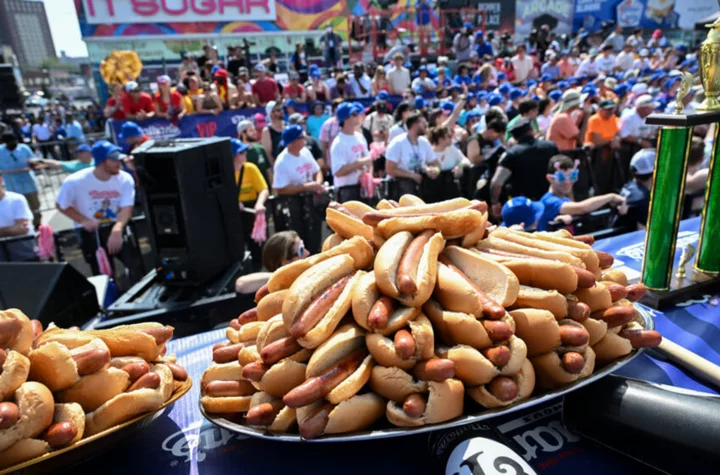
Who won the 2023 Nathan's Hot Dog Eating Contest?
The 2023 Nathan's Hot Dog Eating Contest triumphantly happened after reports came out that it would be canceled. Here's who won.Torrential downpours and flash flooding put the annual Fourth of July Nathan's Hot Dog Eating Contest in jeopardy for several hours on Tuesday. The conte...
2023-07-05 02:23

The hazy history of Nathan's hot dog eating contest
The Fourth of July marks Independence Day in the US. It is also a big day for hot dog lovers.
2023-07-05 00:25
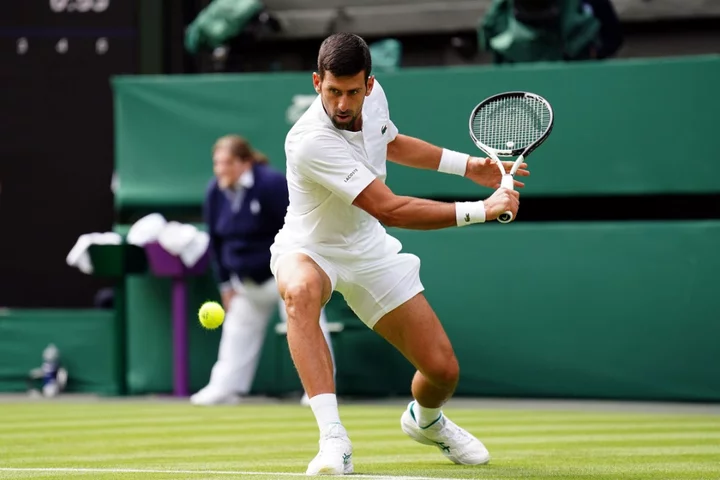
This is how Novak Djokovic is preparing to win Wimbledon
Tennis won Novak Djokovic over when he was just four years old. Since then, the Serbian professional tennis player established himself as a reigning men’s champion. In July 2006, he won his first Association of Tennis Professionals (ATP) event, and reached the semi-finals at Wimbledon and the French Open a year later. The 36-year-old also advanced to the finals of the US Open in 2007, but lost in straight sets to the former Swiss professional tennis player Roger Federer. He managed to win his first Grand Slam tournament at the Australian Open and was awarded a bronze medal at the 2008 Beijing Olympics. Though Djokovic’s performance has plateaued at some points, his hot streak has continued over the last 16 years. He claimed his 21st Grand Slam championship after winning Wimbledon in 2022 and gained his 10th title at the Australian Open, crowning both him and Rafael Nadal with the most Grand Slam men’s singles championships. With the 2023 Wimbledon Championships in full swing until July 16, how will Djokovic prepare himself both mentally and physically to win? Diet Djokovic starts his day with raw celery juice — which has anti-inflammatory properties – and sometimes drinks it before, during and after matches. Celery is about 90% water, so it’s great for hydration first thing in the day, especially when you don’t feel like chugging down a glass of water. On other occasions, he drinks the green goddess smoothie, “which is a load of green things chucked in and blended. In the food industry, you can get green goddess dressings, sauces and juices, which all have kale, spinach, peas, mint, cucumber, apple and spirulina powder all blended into one”, says celebrity private chef Ethan Russell. And for breakfast, Djokovic would normally eat a power bowl — it’s got a lot of healthy fats, grains, and fruit in it — or have it as a snack before exercising. The clear number one rule is being gluten and dairy-free. “It’s a choice many athletes make, especially if they want to feel and perform their best. Gluten and dairy can cause irritation,” Russell says. There are so many different dairy and protein alternatives at the moment, such as coconut, soy and almond. “The bowl has different types of grains, gluten-free granola — with pumpkin seeds and goji berries — then a low sugar style muesli,” he adds.“If you are an athlete and trying to keep your sugar low, you can opt for dairy-free yoghurt and manuka honey, which is quite expensive and very sought after, with its anti-inflammatory properties. People use it in food and skincare, making it a super food. The bowl is then topped with blueberries and strawberries, packed with natural sugars.” Warming-up Djokovic would usually start warming-up with his physiotherapist, then move onto to mobilisation and movement exercises, to minimise the risk of major injuries. Warm-ups can be anything from the running man, squat reaches to the sky and lunge rotations, all of which encourage great blood circulation. A match can last one and a half hours, and there are so many things to manage on match days, according to Mark Taylor, who coaches British tennis player Ryan Peniston and also works at the Junior Tennis Coaching academy. “They play all year round and often under immense pressure. It’s why I also work with a sports psychologist,” he says. Mindfulness Djokovic is heavily into mindfulness, and might begin his day with silent meditating — especially if he’s got an important game to focus on — in a grounded way, to promote mental clarity, calm focus and energy. “Most of us find it difficult to sit still,” says Loren Peta, yoga teacher and personal trainer. “But gentle movement and box breathing — where you draw a box with your mind’s eye to help you stay present — is a great way to transition from a state of doing to state of being.” Whilst in conversation with former Spanish tennis player Alex Corretja at the The House of ASCIS event last Friday, Djokovic opened up about his mental health and wellbeing. “If we are talking about mental strength and preparation, and how it affects performance, I feel like half of the work is already done before you step out on to the court – also known as the battlefield,” Djokovic said. “It’s why I try to only peak at the biggest tournaments and take more time than I used to, to get my mind and body into perfect harmony. My body is responding differently than it was 10 years ago, so I have to be more specific with my preparation, work, training and recovery. I believe in a holistic approach to this sport, and everything else in life. “It’s about everything you do, eat, the relationships around you, how you perceive yourself, the traumas and emotions that are suppressed in you. I know for me, if I suppress something, it will always surface on the court. The more you put these things aside, the bigger the monster will become. “If you fail to prepare, it’s going to be a difficult mountain to climb during the match. Tennis isn’t a sprint, it’s a marathon as well.” Getting the right footwear There are certain things that are important to keep in your kit. But for Djokovic, his racket and shoes are the two most important items for every tennis player, especially at his level. Good shoes adapt to the way a tennis player moves their feet, to ensure the right support and exact comfort can be added, if required. For example, improved extra heel cushioning and ankle support. “The details [are important],” said Djokovic. “Every single thing matters. How you move, how you feel with your racket and shoes. You need to be comfortable with what you are wearing, because it’s going to help you perform and move better. “I probably move differently to most of the guys out there – even on grass, I slide. [So I need] really flexible shoes that allow me to stop when I need to stop, and change directions when I need to change directions. It can’t be too light or too heavy.” Read More Charity boss speaks out over ‘traumatic’ encounter with royal aide Ukraine war’s heaviest fight rages in east - follow live Money-saving ways to garden on a budget 8 budget-friendly ways to juggle childcare and work during holidays Dior’s couture show was the epitome of quiet luxury
2023-07-04 16:58
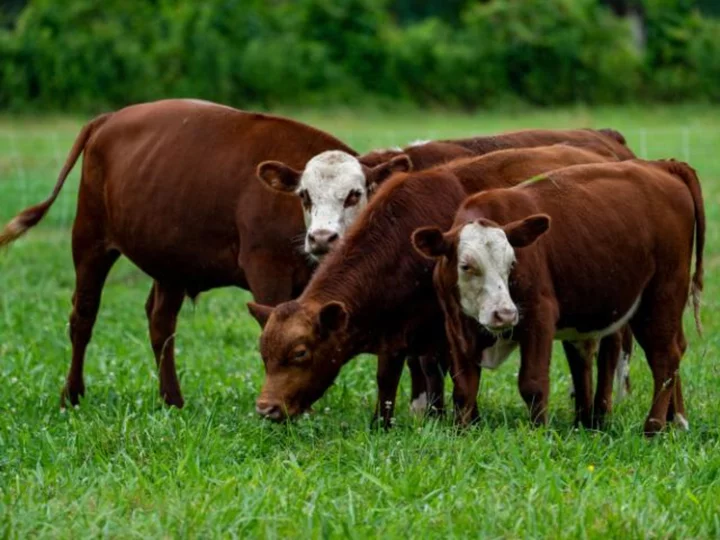
Hamburgers and steaks are a big climate problem. Could new grazing practices be the answer?
It sounds like clickbait: How this one weird cow trick can improve soil, water, wildlife, and farmer wealth while pulling tons of planet-cooking carbon from the sky. But research has found grazing like buffalo has plenty of benefits.
2023-07-03 22:23
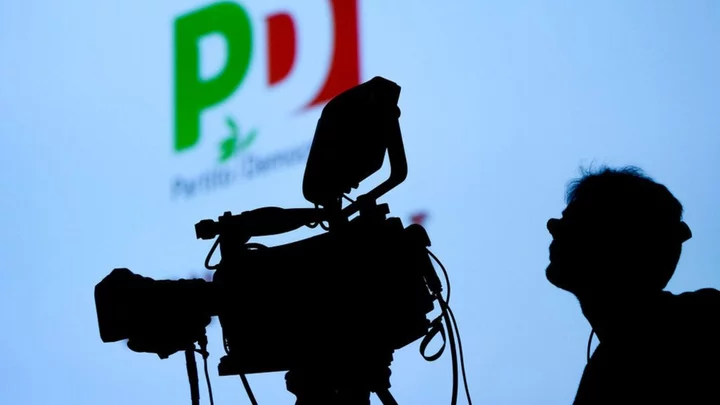
Italy media guide
An overview of the media in Italy, including links to broadcasters and newspapers.
2023-07-03 22:15
